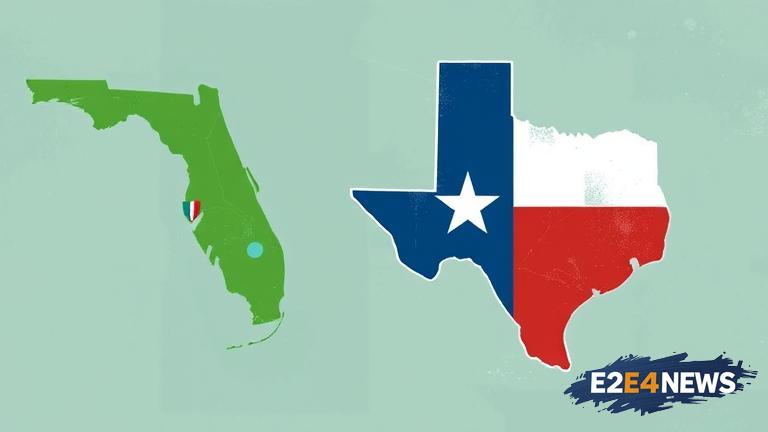The hemp industry has been gaining momentum in recent years, with many states taking steps to regulate and legalize the crop. Two states that have been at the forefront of this movement are Florida and Texas. In Florida, the Department of Agriculture and Consumer Services has been working to establish a hemp program, which includes rules for licensing, growing, and processing hemp. The program has been in effect since 2020 and has already seen significant growth, with many farmers and businesses taking advantage of the opportunity to cultivate and sell hemp products. Texas, on the other hand, has taken a slightly different approach, with the Texas Department of Agriculture responsible for overseeing the state’s hemp program. The program in Texas has been in place since 2019 and has also seen significant growth, with many businesses and farmers participating. One of the key updates in Florida is the establishment of a hemp advisory committee, which will provide guidance and recommendations to the Department of Agriculture and Consumer Services on hemp-related issues. The committee will be made up of industry stakeholders, including farmers, processors, and retailers, and will play a crucial role in shaping the future of the hemp industry in Florida. In Texas, the Department of Agriculture has been working to develop a plan for regulating hemp products, including CBD oil and other hemp-derived products. The plan will include rules for labeling, testing, and packaging, and will help to ensure that consumers have access to safe and reliable hemp products. Another important update in Florida is the expansion of the state’s hemp program to include more types of hemp products, such as hemp fiber and hemp seeds. This will provide more opportunities for businesses and farmers to participate in the industry and will help to drive growth and innovation. In addition to these updates, both Florida and Texas have been working to address the issue of hemp transportation and interstate commerce. Currently, there are still some restrictions on the transportation of hemp across state lines, but both states are working to resolve these issues and make it easier for businesses to transport hemp products. The hemp industry is expected to continue to grow and evolve in the coming years, with many experts predicting that it will become a major player in the agricultural sector. As more states establish hemp programs and regulations, it is likely that we will see even more innovation and growth in the industry. For businesses and consumers, this means that there will be more opportunities to participate in the industry and to access high-quality hemp products. However, it also means that there will be more competition and more regulations to navigate. To stay ahead of the curve, it is essential to stay up-to-date on the latest developments and updates in the hemp industry. This includes following news and updates from states like Florida and Texas, as well as participating in industry events and conferences. By doing so, businesses and consumers can ensure that they are well-positioned to take advantage of the opportunities presented by the hemp industry. The hemp industry is also expected to have a significant impact on the environment, with many experts predicting that it will become a major player in the sustainable agriculture sector. Hemp is a highly versatile crop that can be used to produce a wide range of products, from food and fiber to biofuels and building materials. It is also a highly sustainable crop, requiring less water and pesticides than many other crops. As the industry continues to grow and evolve, it is likely that we will see even more innovative and sustainable uses for hemp. In conclusion, the updates on Florida and Texas hemp regulation are significant and demonstrate the growing momentum of the hemp industry. With more states establishing hemp programs and regulations, it is likely that we will see even more growth and innovation in the industry. For businesses and consumers, this means that there will be more opportunities to participate in the industry and to access high-quality hemp products. However, it also means that there will be more competition and more regulations to navigate. By staying up-to-date on the latest developments and updates, businesses and consumers can ensure that they are well-positioned to take advantage of the opportunities presented by the hemp industry.
